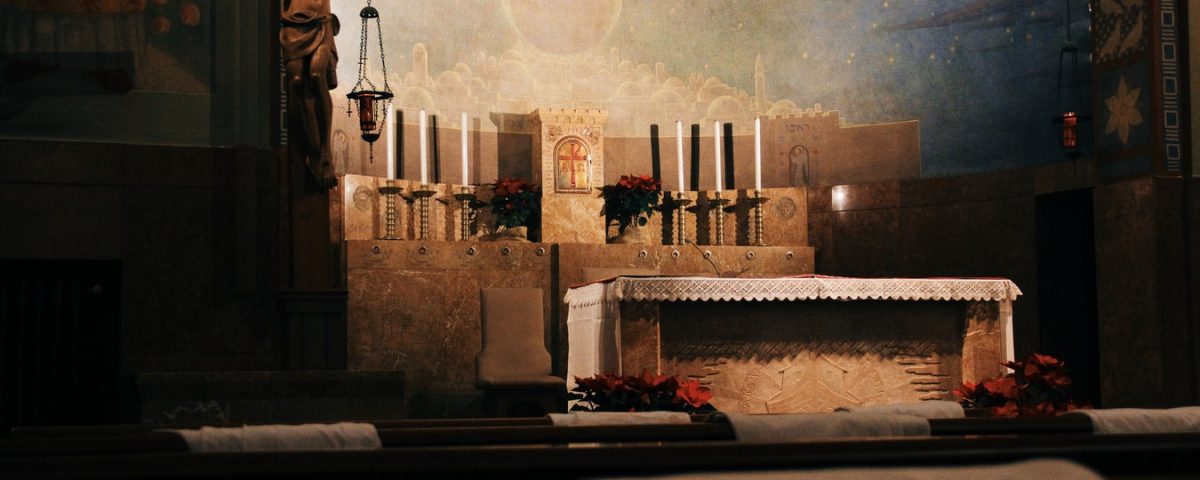Ignorance of Scripture, St. Jerome said, is ignorance of Christ. We’ve heard this often. We know it’s true.
And it challenges us, as St. Augustine was challenged, to open our Bibles, to “take and read.” Essential for each Christian, not optional at all, to be a student of Scripture is as necessary to the soul as anything else. Even the busy have no excuse. “What are you saying?” St. John Chrysostom asked his flock. “That attending to the Scriptures is not for you, since you are surrounded by a multitude of cares?” We must, he said, wear the “full armor of the Scriptures,” especially Christians living in the world. For, in fact, if we are to be Christians at all—any of us—we must know Christ. Which brings us back to St. Jerome and the Bible you may still need open.
But, as some Catholics say, “I have the Mass!” Indeed, we do. Christ is truly present in the Eucharist. But that only makes reading Scripture even more essential! For since Christ is present in the Eucharist, we might just as well change St. Jerome’s axiom to say: Ignorance of Scripture is ignorance of the Mass. And now we see how necessary biblical literacy is to Catholic life. Reading the Bible, becoming a biblical person, helps us contemplate the Mass more clearly, more deeply, more theologically just as the Church would have us do. In practical terms, the more biblical we become the more we see and understand the Mass, the more we grasp the many allusions at work in words and ritual; all of which (when seen with biblical eyes) ushers us into the mystery of the liturgy, into that sacramental space where heaven and earth, close together, shine splendorous.
This is precisely what Scott Hahn beautifully describes in The Lamb’s Supper, writing of his experience when as a Protestant he furtively attended Mass, his Bible beside him. Because he is a deeply biblical disciple of Jesus, he saw the Mass more clearly, more deeply, more theologically. That is, he saw the Mass for what it is. “Wait a minute,” Hahn thought to himself, seeing and listening to the Mass, “That’s heaven. No, it’s the Mass. No, it’s the Book of Revelation. Wait a minute: it’s all of the above.” Hahn’s experience, belonging to his conversion, proves the truth of St. Jerome’s axiom. Because he knew Scripture, he knew Christ; and thus, he knew how to find him. Walking into a Catholic chapel one day, all he had to do was sit down, and, with biblical eyes and ears, pay attention. It was that simple and powerful, precisely because he was a biblical person.
It’s an example that should inspire us. To participate actively in the Mass, it is necessary before all else that we become biblical people. Before worrying about music or vestments, before signing up to be a reader or anything else, what matters first is that we become the sort of people that can contemplate the Mass more clearly, more deeply, more theologically. When, for instance, the priest invokes the Holy Spirit upon the gifts, “like the dewfall,” in Eucharistic Prayer II, we should instinctively recall the dew and the manna, God’s nourishing gifts for Israel in the desert (Exodus 16:13-17), seeing ourselves, of course, as pilgrims in the desert too. Or, in Eucharistic Prayer III when the priest prays the Father to “gather to yourself all your children scattered throughout the world,” we should imagine instantly everything from the promise made to Abraham to the supper of the Lamb, seeing ourselves gathered up with all the saints of every age too. There are innumerable such examples available, each an entry point that, when recognized, carry us into the mystery both Scripture and the Eucharist signify.
Which, of course, is the mystery of Christ we seek, and which is as near as the nearest altar and the Bible in your home.










